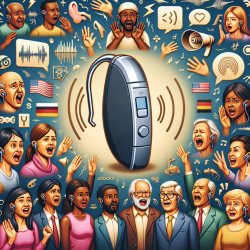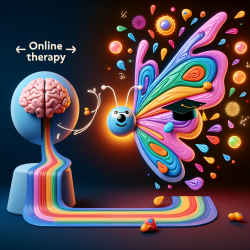Introduction
In the realm of speech-language pathology, understanding the nuances of how hearing aids affect speech recognition is crucial. A recent study titled "Hearing Aids Benefit Recognition of Words in Emotional Speech but Not Emotion Identification" sheds light on this intricate subject. This research provides valuable insights that can aid practitioners in refining their therapeutic approaches, especially when working with children who use hearing aids.
Key Findings
The study explored how hearing aids influence the recognition of words spoken with emotional intonations and the identification of the emotions themselves. The findings revealed that while hearing aids significantly improved word recognition in emotional speech, they did not enhance the ability to identify emotions.
- Word Recognition: Hearing aids improved word recognition accuracy from 38.1% (unaided) to 65.1% (aided).
- Emotion Identification: There was no significant improvement in emotion identification, with accuracy rates of 36.0% unaided and 41.8% aided.
Implications for Practitioners
For speech-language pathologists, these findings underscore the importance of differentiating between linguistic and non-linguistic auditory processing in therapeutic settings. Here are some practical applications:
- Focus on Word Recognition: Emphasize strategies that leverage the improved word recognition capabilities provided by hearing aids.
- Supplement Emotion Identification: Incorporate visual aids and other multimodal strategies to enhance emotion identification, which hearing aids alone do not improve.
- Individualized Therapy Plans: Customize therapy plans to address the specific needs of children, considering both their linguistic and emotional processing capabilities.
Encouraging Further Research
While the study provides a foundational understanding, it also highlights the need for further research. Practitioners are encouraged to explore additional factors that may influence emotion identification, such as cognitive abilities and the role of visual cues.
Conclusion
Understanding the differential impact of hearing aids on word recognition and emotion identification is vital for creating effective therapeutic strategies. By focusing on data-driven insights and continuing to explore this field, practitioners can significantly enhance communication outcomes for children with hearing impairments.
To read the original research paper, please follow this link: Hearing Aids Benefit Recognition of Words in Emotional Speech but Not Emotion Identification.










